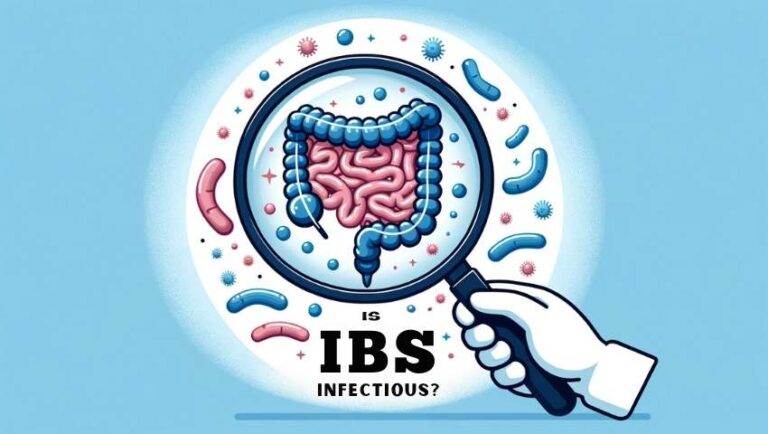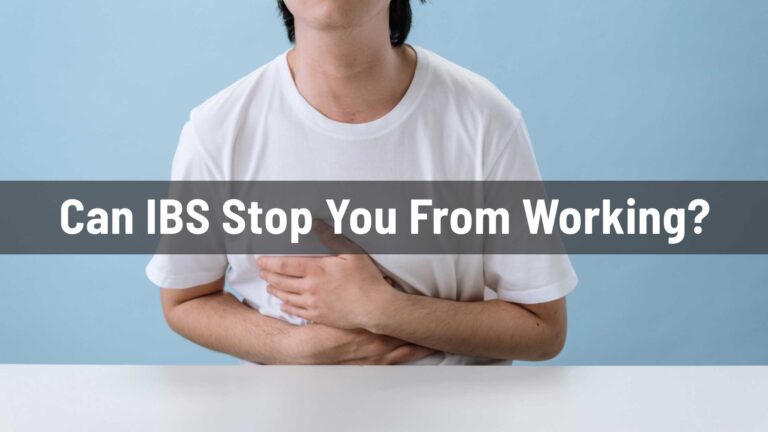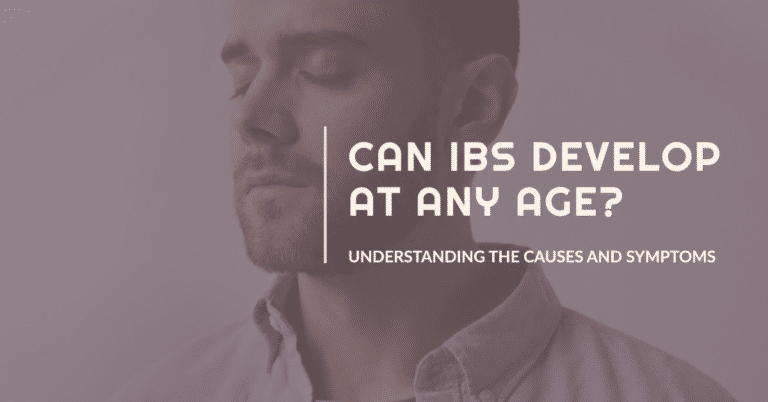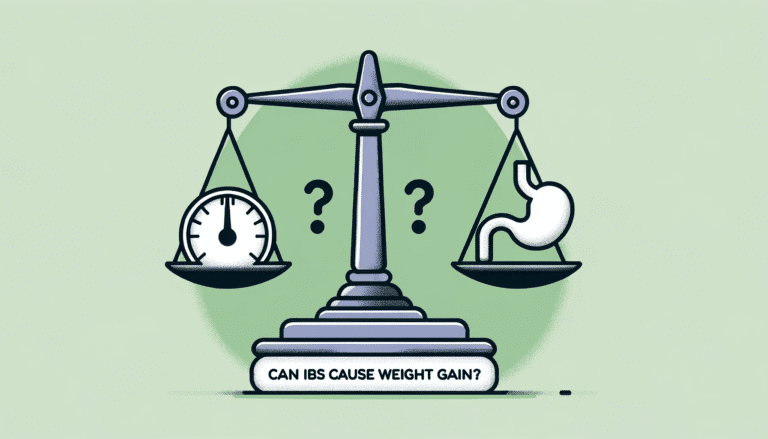Is IBS Triggered by Stress? – A Deep Dive into the Facts
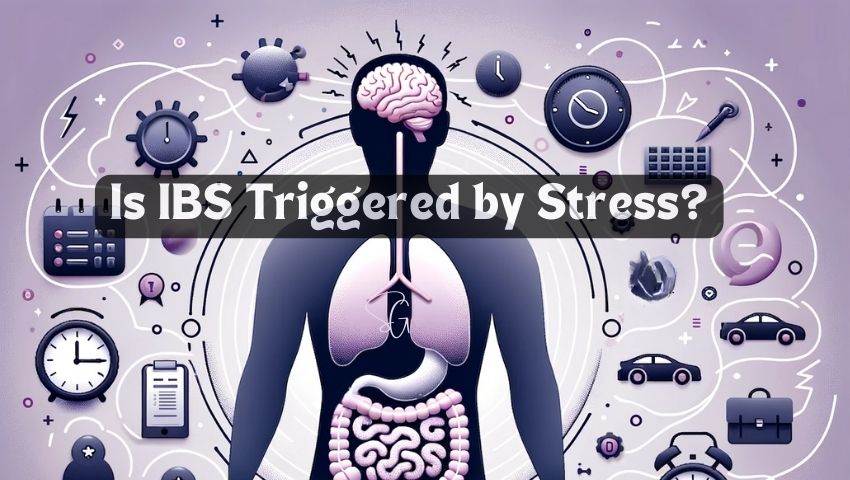
Ah, the gut-twisting saga of IBS and stress. Quick spoiler: yes, stress can exacerbate IBS symptoms.
But like any dramatic plot, there’s complexity, plot twists, and—dare I say—a gut-brain axis involved.
Curious about the link between stress and that gnarly gut of yours?
Stick around, you won’t want to miss this.
Key Takeaways
- Stress is a notorious accomplice in aggravating IBS.
- The gut-brain axis is your body’s communication superhighway that links stress and IBS.
- Learning how to manage stress could be your golden ticket to taming the belly beast.
- It’s not just stress; diet and lifestyle choices can also be villains in this gastrointestinal drama.
- Unraveling this complex relationship can unlock smarter, more targeted ways to manage your IBS.
The Intricate Dance of Stress and IBS
The Gut-Brain Axis: A Story of Symbiosis
Now, let’s talk about the gut-brain axis. It’s the VIP channel where your gut and brain gossip like old friends. This chatter is more than just small talk; it’s an ongoing conversation that can either soothe or inflame your IBS symptoms.
When stress enters the stage, the gut-brain axis often disrupts this balance, leading to digestive drama like constipation or diarrhea.
Hormones, Stress, and Your Bowels
Stress triggers a release of hormones such as cortisol and adrenaline. Fun fact: your bowels aren’t too keen on these hormonal party crashers.
The bowels retaliate by either slowing down, leading to constipation, or speeding up, causing diarrhea.
Essentially, stress and anxiety waltz right in and tell your digestive system to either “hurry up” or “slow down,” neither of which is ideal for people with IBS.
Are All IBS Cases Stress-Induced?
Heck no. While stress can worsen IBS symptoms, it’s not the root cause of IBS. Other factors like diet, gut bacteria, and even genetics play key roles.
Stress may be a common villain, but it doesn’t act alone. It’s one of many influences on your bowel movement patterns and overall digestive health.
So, How to Pinpoint the Stressor?
You know stress is a big deal. But how do you figure out what’s causing it? It could be anything from work pressure to personal issues.
The best way to identify what’s triggering your IBS is to keep a journal. Document your diet, your stress levels, and your symptoms. It’s detective work, but for your bowels.
Tools to Manage Stress and IBS
Mind Over Matter: Stress Management Techniques
Good news: you can learn to manage stress and, as a result, manage your IBS.
Techniques like deep breathing, progressive muscle relaxation, and even cognitive behavioral therapy (CBT) can be life-altering.
Reduce stress, and you’ll likely see a corresponding dip in your IBS symptoms.
What About Food?
Let’s not forget the role of diet. Certain foods can irritate your bowels just as much as stress. Dairy, greasy foods, and yes, even that innocent-looking asparagus can bloat you up like a balloon.
So along with stress management, consider dietary changes. Sometimes what you eat can be as triggering as a stressful situation.
Armed with this knowledge, you’re ready to tackle the intricacies of IBS and stress head-on. It might not be an overnight transformation, but knowing how to manage stress can be a game-changer for your digestive health.
Medical Treatments for Stress-Triggered IBS
Prescription Remedies: Not Just Pills in a Bottle
Medications are another option in your stress and IBS management toolkit. While not a magical cure, they can alleviate some of the more severe symptoms of IBS.
Anti-spasmodic medications can help relax the muscles in your gut, reducing abdominal pain.
Laxatives or anti-diarrheal medications are useful too, depending on whether you’re constipated or the opposite.
Gut-Specific Antidepressants: Mind the Gap
Interestingly, some antidepressants are prescribed for IBS, not just for your mood but also for their effects on the gut-brain axis.
Tricyclic antidepressants and SSRIs can have a calming effect on your gut, reducing the severity of IBS symptoms. If you also suffer from anxiety or depression, it’s like hitting two birds with one prescription.
Mental Health and IBS: They’re Linked, Alright
Psychological Factors: More Than Meets the Eye
The link between stress and IBS dives deep into your psychological wellbeing. Many IBS patients have higher rates of anxiety and depression.
So, treating IBS can sometimes feel like you’re solving a complex puzzle with emotional, mental, and physical pieces.
A multidisciplinary approach is often best. Consult mental health professionals alongside your regular doctor for a well-rounded treatment plan.
Your Social Life: No, You’re Not Alone
Living with IBS isn’t just about managing symptoms; it’s about maintaining your quality of life. Social stressors in your life can also exacerbate IBS symptoms.
Feeling isolated? Don’t. There are support groups and IBS networks you can join. Sometimes sharing experiences and tips can make managing IBS easier.
Your Daily Routine: Simple Changes, Big Impact
Time Management: Every Minute Counts
Believe it or not, how you structure your day can affect your IBS symptoms. Chaos leads to stress, stress leads to IBS flare-ups. It’s a domino effect.
By managing your time more effectively, you can reduce stressors in your life and in your digestive system.
Exercise: Not Just For Muscles
Physical activity isn’t only good for toning your abs; it can tone down your IBS symptoms as well. Exercise is a fantastic stress reliever that directly benefits your digestive system.
It helps move food along your gastrointestinal tract, alleviating constipation and even helps manage your stress levels.
By implementing these strategies into your life, you can break the vicious cycle of stress and IBS. Finding the balance can be a journey, but with the right tools and information, you can definitely make life a lot more comfortable.
Want to explore more about the chronic nature of IBS? Have a look at our article about why IBS can become worse over time.
Dietary Choices: Food is Your Friend and Foe
Fiber and Fruits: The Double F Factor
Not all foods are your enemies when it comes to IBS. Increasing fiber intake can significantly help manage symptoms of irritable bowel syndrome like constipation.
Fruits like blueberries and bananas are your allies in this battle, making your digestive system less prone to havoc.
Spices and Sweets: Tread Lightly
As someone who has to navigate the maze of foods that trigger symptoms, it’s crucial to exercise caution with spices and sugar.
Foods high in fat and sugar can worsen IBS symptoms. Do yourself a favor: keep a journal to track what exacerbates your condition.
Is IBS Triggered By Stress? – Final Thoughts
While IBS can be an ongoing battle, understanding the intricate relationship between stress and IBS can open doors to better management strategies.
The blend of medical treatments, psychological support, and lifestyle changes makes tackling IBS a multifaceted endeavor.
Effective stress management, be it through medication, exercise, or dietary choices, can be a game-changer in improving your quality of life. It’s not just about soothing the bowel; it’s about embracing a holistic approach to your well-being.
Ready to go deeper into the world of IBS? Here’s some vital information on what helps during an IBS flare-up. Stay informed, stay empowered, and most importantly, stay optimistic.
Life with IBS can indeed be a challenging journey, but remember: you’ve got the reins. Steer it well.
Disclaimer: This content is based on my personal experience as an individual diagnosed with celiac disease and IBS (Irritable Bowel Syndrome) who follows a strict gluten-free diet. This does not constitute medical advice. Please consult a medical professional, nutritionist, or qualified dietitian for personalized, professional advice.

